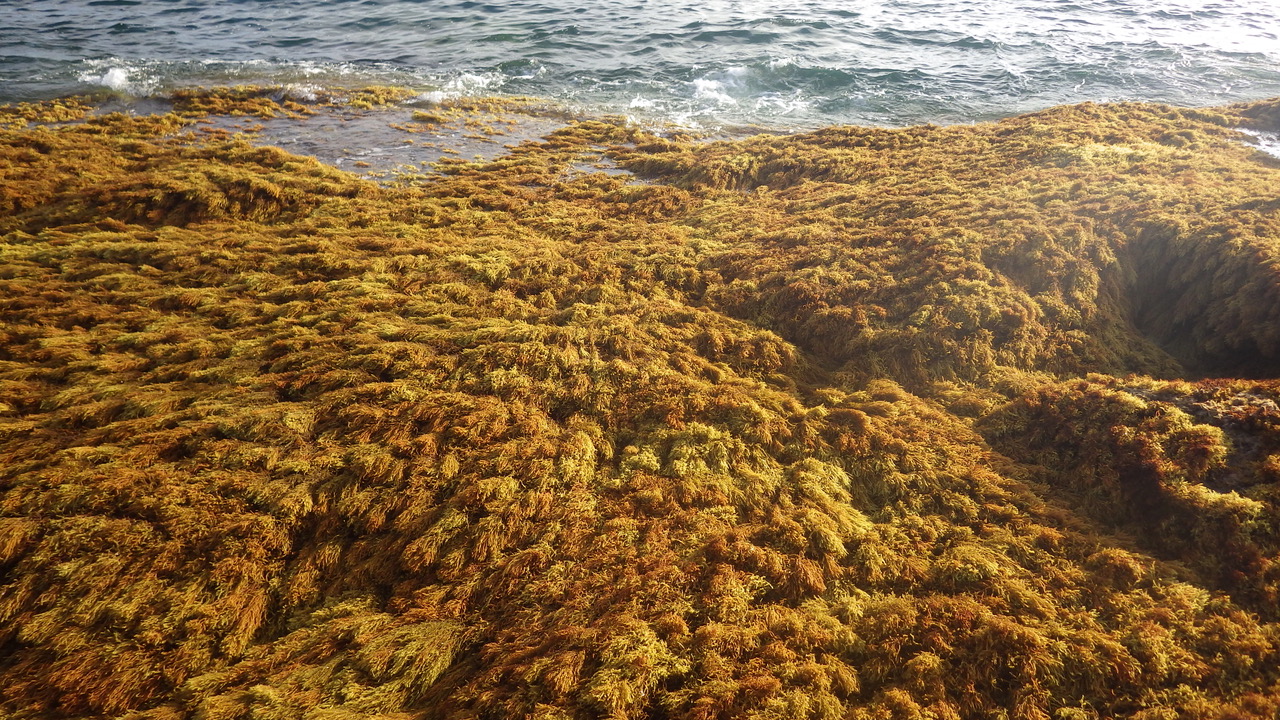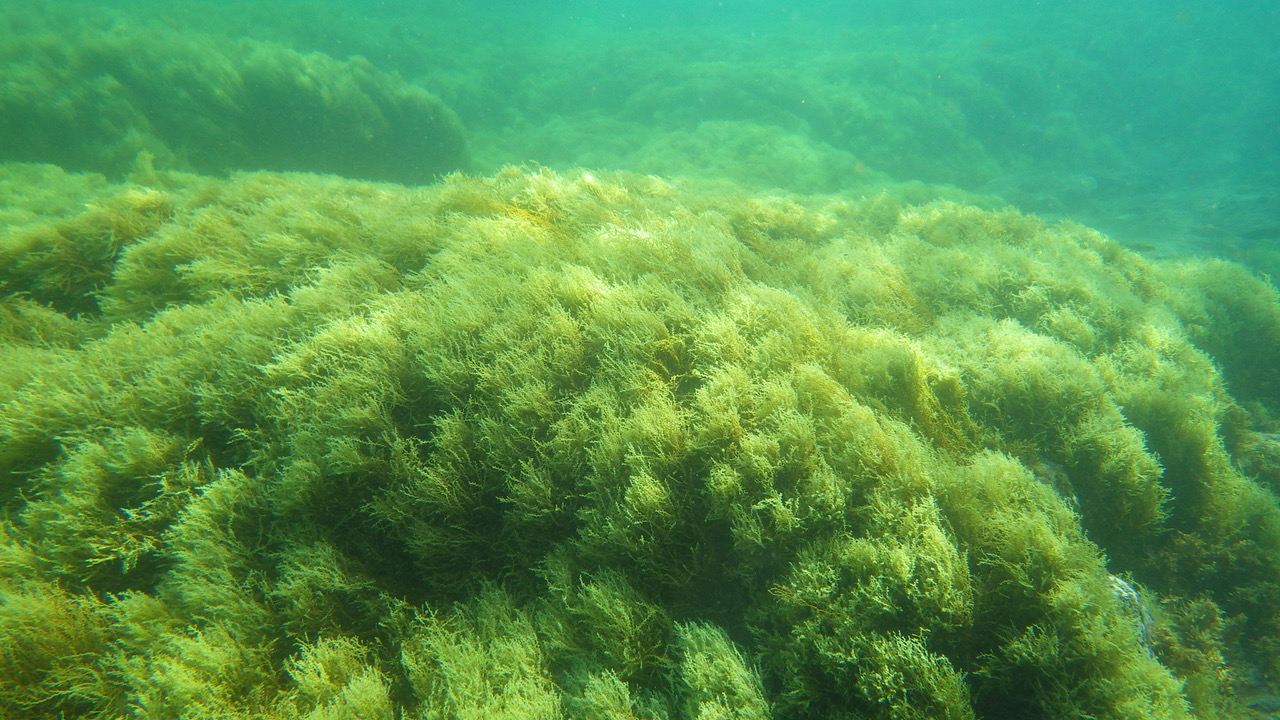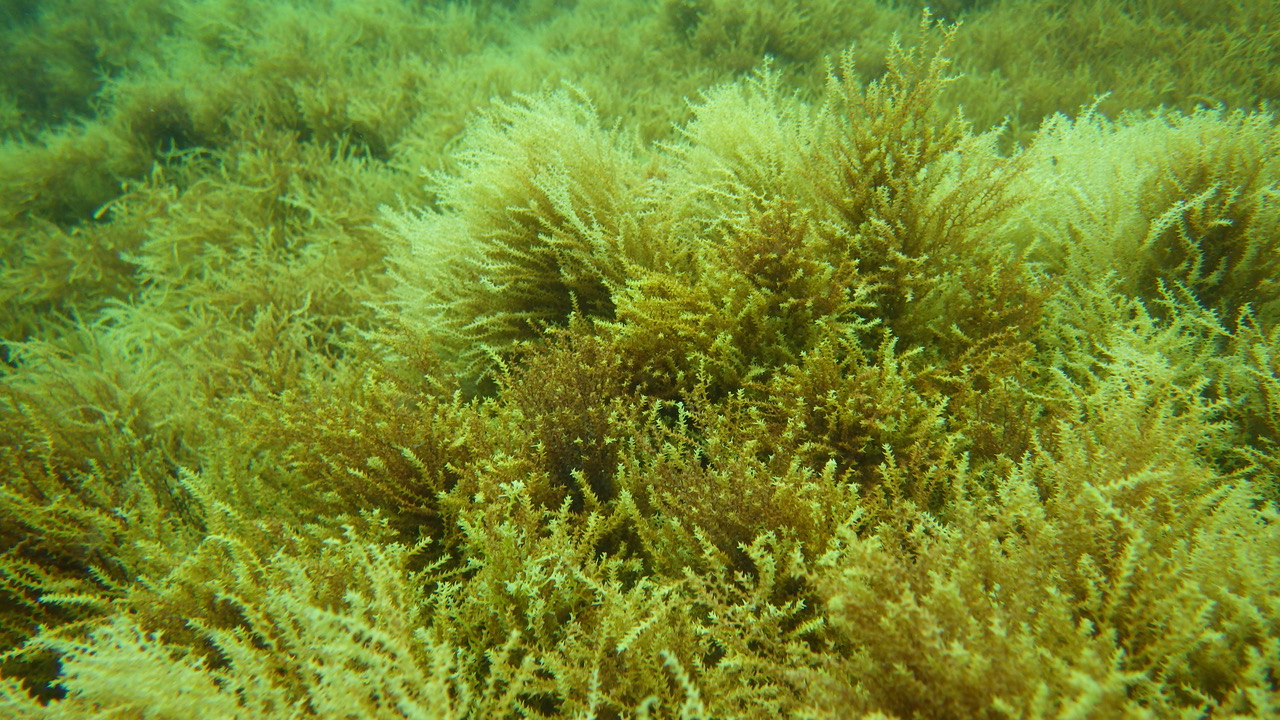Research led by Dr Valdazo Hernández, from the BIOCON group of the ECOAQUA institute of the ULPGC, links human activity and the increase in ocean temperatures with the 99% decrease in the island's macroalgae forests.
Dr. José Antonio Valdazo Hernández, researcher of the Biodiversity and Conservation group of the Institute for Research in Sustainable Aquaculture and Marine Ecosystems (ECOAQUA) of the University of Las Palmas de Gran Canaria (ULPGC), has led a scientific study that aims to shed light on the impact that climate change is having on marine habitats.
The results of his research have revealed that the island of Gran Canaria has suffered about a 99% decrease in the extension of a species of macroalgae called ‘Gongolaria abies-marina’ in recent decades, which is classified as a vulnerable species and has been included in the regional and national catalogue of protected species. This macroalgae grows mainly in the Macaronesian region, especially in the Canary Islands, where it is most abundant.
 Populations of Gongolaria abies-marina, in Salinetas, Gran Canaria.
Populations of Gongolaria abies-marina, in Salinetas, Gran Canaria.
Its alarming decline in Gran Canaria is mainly related to a combination of global and local human-driven environmental stressors. ‘Marine heatwaves have been increasing at the same time as the disappearance of large subtidal or submerged extensions of ‘Gongolaria abies-marina’ forests has been recorded’, highlights José Valdazo, postdoctoral researcher in the framework of the RESTORESEAS project.
Under the title ‘Local and global stressors as main drivers of the drastic regression of brown macroalgae forests on an oceanic island’, the article signed by José Valdazo, as principal investigator, as well as Ricardo Haroun, Fernando Tuya and María Ascensión Viera-Rodríguez, on behalf of the ECOAQUA institute, and Josep Coca, technician at GRAFCAN, and Óscar Bergasa, founder and CEO of the consultancy firm elittoral, focuses on the changes in the distribution and health of brown macroalgae forests in an oceanic island; Josep Coca, technician at GRAFCAN, and Óscar Bergasa, founder and CEO of the consultancy elittoral; it focuses on the changes in the distribution and health of marine brown macroalgae forests in the oceanic waters surrounding Gran Canaria and their relationship with anthropic variables in a context of climate change.
Using a multidisciplinary approach, the research analyses the marine forests formed by this brown macroalgae, whose role is crucial in the structure and function of coastal marine habitats, since it provides shelter and food for a wide variety of marine organisms.
The analysis also explores the understanding of the thermotolerance of the embryonic stages of this species and its ability to adapt to changing environmental conditions, by comparing the presence of the species on a small scale and analysing the historical variation in the size of its structure.
Rising temperatures and human activity
The study was carried out using a combination of in situ sampling techniques, time series analysis of climate data and advanced statistical modelling. The macroalgae samples, collected along the entire coastal perimeter of Gran Canaria for distribution, as the species only grows on rocky substrate, allowed the spatial and temporal distribution of ‘Gongolaria abies-marina’ forests to be analysed.
 Populations of Gongolaria abies-marina, in Salinetas, Gran Canaria.
Populations of Gongolaria abies-marina, in Salinetas, Gran Canaria.
In addition, the team led by Valdazo carried out thermotolerance experiments in the laboratory to evaluate the response of the embryonic stages of the macroalgae to different thermal regimes.
The results have revealed an ‘alarming’ link between the increase in heatwaves and the regression of ‘Gongolaria abies-marina’ forests in Gran Canaria. A significant decrease in the distribution and cover of this macroalgae is observed in subtidal areas, especially in the south and southwest of the island, where anthropic pressure is higher. In these areas, its habitat persists in small cracks and hollows in the rock, where they find refuge from extreme temperatures and herbivores.
Meanwhile, the populations in the north of Gran Canaria, characterised by higher wave power and less anthropic pressure, are relatively better preserved.
This research thus demonstrates how climate change, with its extreme phenomena such as marine heatwaves, has abruptly altered the structure and function of marine ecosystems, by reducing the survival and growth of macroalgae in their embryonic phase and endangering the persistence of populations on the Canary Islands' coasts.
 Populations of Gongolaria abies-marina, in Salinetas, Gran Canaria.
Populations of Gongolaria abies-marina, in Salinetas, Gran Canaria.
Moreover, according to the research, human activity has also played a crucial role in this decline. ‘Habitat destruction, pollution and eutrophication act cumulatively and synergistically, by amplifying the effects of climate change on coastal habitats,’ says the researcher.
Urgent and coordinated action
The findings detailed in the research highlight the importance for the conservation of Gran Canaria's marine ecosystems of the urgent implementation of protection and sustainable management measures.
These measures should provide for coordinated action at local and global level to reduce greenhouse gas emissions and mitigate the impacts of climate change on the oceans.
The study also highlights the importance of establishing marine protected areas and promoting sustainable fishing and tourism practices to preserve marine biodiversity and ensure the well-being of coastal communities.
The research team led by Dr Valdazo Hernández will continue to monitor the evolution of marine ‘Gongolaria abies-marina’ forests and evaluate their response to environmental changes. In addition, they plan to conduct further studies to better understand the underlying mechanisms of thermotolerance and explore restoration strategies to recover degraded marine ecosystems.


